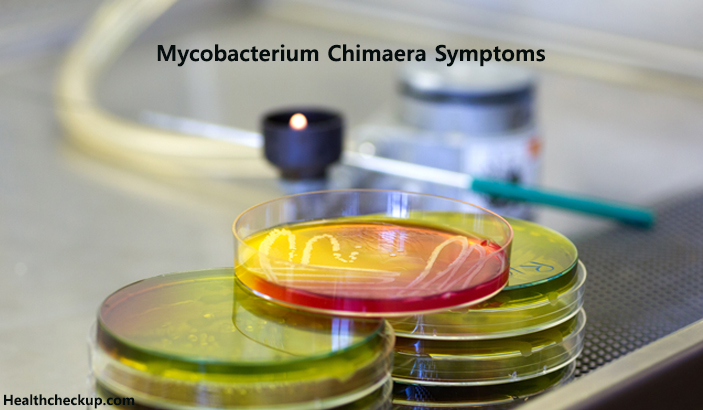Due to new threats for cardiac surgical patients US Food and Drug Administration (FDA) published Heater Cooler Units (HCUs) recommendations on its use. This is because patients who used this heater cooler units were found with infections that were as a result of the use of these units during cardiac procedures. Several Mycobacterium Chimaera infection lawsuits have been filed concerning the open heart devices which were used during the surgery.
What is Mycobacterium Chimaera?
This is a gene of Mycobacterium (Mycobacterium Avium Complex-Mac) a nontuberculous Mycobacterium which is slow-growing. It is mostly responsible for Pneumonia patients who have conditions of deficits in immune respiratory systems and mucoviscidosis. There are also reports of infections and skin which have been reported. This bacterium mostly occurs in water environments like places of water supply installations. Late clinical manifestations, weak treatment response, and prognosis which are poor characterize postoperative infections.
Symptoms of Mycobacterium Chimaera Infections
After an open-heart surgery despite the thorough and intensive cleaning and cleansing infections have seen occurring after the procedure. So if a patient who has undergone the open-heart surgery sees the following symptoms it is important to seek further treatment or testing of Mycobacterium Chimaera in order to prevent other complications. Listed below are the most common symptoms of Mycobacterium Chimaera.
- Having night sweats
- Pain in the joints or muscle
- Coughing that is persistent
- Blood coughing
- Symptoms of fever with temperatures of 100.40F (380C) which produces shivers and heat sensations.
- Weight loss that is unexplainable
- Appetite loss
- A lot of tiredness
- Feeling Sickly
- Vomiting
- Surgical site pus, redness, pain and warmth.
- Breathing Shortness Increase.
Causes of Mycobacterium Chimaera Infections
Mycobacterium Chimaera infections are mainly caused by aerosols that are produced by heater cooler which are contaminated during the procedures of open heart surgery.
During an open-heart surgery, heater cooler units are necessary because they are used during the procedure to cool or warm patients. The water tanks that regulate blood temperature can unfortunately be invaded by this mycobacterium chimaera and they as well can thrive inside. Although water in the tank doesn’t come into contact with the patient’s body fluid or blood but water can be aerosolized by components in the units and if they come into contact with Mycobacterium Chimaera, they can release water vapors that contain this bacteria which can enter to the patient’s open-chest cavity.
Mycobacterium Chimaera Testing /Diagnosis
Diagnosis of Mycobacterium Chimaera can be done using blood sample tests which are extensive. After several weeks, the sample is cultured in an environment that is growing and the results are confirmed. This bacterium which is infectious is normally not spread through from person to person. Death or serious illnesses can be caused by nontreatment of Mycobacterium Chimaera infections.
Mycobacterium Chimaera Lawsuit
There are several lawsuits that have been filed concerning mycobacterium chimaera.A couple in Phennyslavia file a Mycobacterium Chimaera lawsuit in court called District Court for the Eastern District on February 23, 2018.Robert J and Jean J. brought their legal complains against Liva nova company, this a company that makers 3T heater-cooler devices. The couple filed this case claiming that the Mycobacterium Chimaera lawsuit was because this device has caused an infection to Mr. Robert who was undergoing an open –heart surgery. Several other lawsuits have been filed mostly to this company concerning the 3T heater-cooler device.
Mycobacterium Chimaera Endocarditis
Due to fast growing non- tuberculous Mycobacterium, prosthetic valve endocarditis has been reported anecdotally. Cases of prosthetic valve endocarditis have been reported, a case was reported on June 2011 where by man aged 58 years old was admitted in a hospital for mitral and aortic valve replacement.By the year 2008 the patient had undergone an implantation of mitral annuloplastry ring where his aortic and mitral were reconstructed. After twelve months the patient experienced distress in the respiratory system, had weight loss and intermediate fever. After several testing PVE was ruled out, conventional blood culture was negative and transesophageal echocardiogram showed mitral and aortic that was moderate and insufficient and there was no suggestions of endocarditis
On May 2011, the patient was admitted again with respiratory distress after testing conventional blood culture was negative and transesophageal echocardiogram showed mitral and aortic that were evident and insufficient therefore the patient was referred to another hospital for valve repeat. During the surgery there was evidence of mitral and aortic cusps destruction but both valves were replaced with bioprostheses which were new.15 days later the patient died due to heart failure which was progressive and permission for autopsy could not be obtained.
Incubation Period for Mycobacterium Chimaera
Mycobacterium Chimaera infections are slow-growing.an infection can take several months to a 4 years before it is well recognized. In UK the incubation period for Mycobacterium chimaera is reported to be 5 years with unknown upper limit. People who develop the Mycobacterium Chimaera symptoms after an open-heart surgery should take precaution immediately they start showing.
Medically Reviewed By








